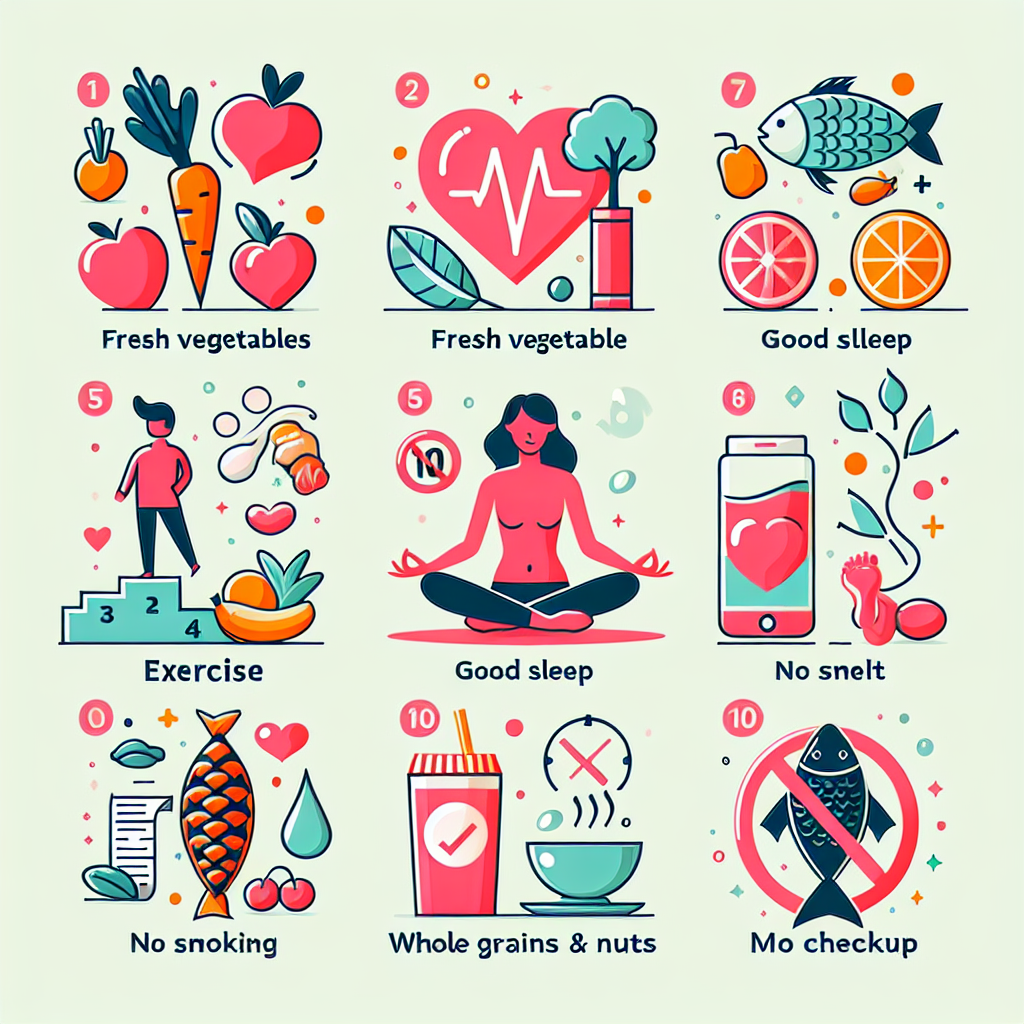Top 10 Essential Insights on Maintaining a Healthy Heart

Posted on: Monday, March 11th, 2024
Maintaining heart health is crucial for a long and vibrant life, as cardiovascular diseases remain one of the leading causes of morbidity and mortality worldwide. Recent studies emphasize the importance of lifestyle changes, dietary adjustments, and regular check-ups for optimal cardiovascular functioning. The advancement in medical research provides new insights into preventive measures and effective strategies to combat heart-related conditions. This guide offers a curated list of the top 10 essential insights based on current evidence and expert recommendations for sustaining heart health.
1. Embrace a Heart-Healthy Diet
Eating a diet rich in fruits, vegetables, whole grains, and lean proteins while limiting saturated fats, added sugars, and sodium can significantly reduce the risk of heart disease. The Mediterranean diet, in particular, has been highlighted for its cardiovascular benefits.
2. Regular Physical Activity
Engaging in at least 150 minutes of moderate aerobic exercise or 75 minutes of vigorous exercise each week is recommended. Activities such as walking, cycling, swimming, or jogging can bolster heart health by improving blood circulation and heart function.
3. Maintain a Healthy Weight
Excess body fat, particularly around the abdomen, increases the risk of heart disease and other health conditions. Calculating Body Mass Index (BMI) and waist circumference can help evaluate risk factors, and taking steps to achieve a healthy weight is crucial.
4. Monitor Blood Pressure
High blood pressure is a major risk factor for heart disease and stroke. Regular monitoring at home or by a healthcare provider is essential for management and prevention. Lifestyle changes and medication can be effective in maintaining optimal levels.
5. Control Cholesterol Levels
High levels of LDL (bad) cholesterol can lead to plaque buildup in the arteries, increasing the risk of heart attack and stroke. A heart-healthy diet, regular exercise, and medication, if necessary, can help maintain healthy cholesterol levels.
6. Reduce Blood Sugar
High blood sugar levels can damage the heart and blood vessels over time, leading to cardiovascular diseases. Managing diabetes or pre-diabetes with diet, exercise, and medication is vital for heart health.
7. Quit Smoking
Smoking damages the blood vessels and can lead to heart disease. Quitting smoking can dramatically reduce the risk of cardiovascular diseases and improve overall health.
8. Limit Alcohol Intake
Excessive alcohol consumption can increase blood pressure and lead to heart failure or stroke. Moderation is key, and guidelines suggest no more than one drink per day for women and two for men.
9. Manage Stress
Chronic stress may contribute to heart disease by affecting blood pressure and other heart risk factors. Techniques such as mindfulness, meditation, exercise, and seeking professional help can manage stress effectively.
10. Regular Health Screenings
Regular check-ups can detect cardiovascular diseases in their early stages. Screenings for blood pressure, cholesterol, diabetes, and other risk factors are essential aspects of heart health maintenance.
Adopting these healthy lifestyle habits and monitoring your heart health through regular check-ups are vital steps in preventing heart disease. While genetics play a role in cardiovascular risk, the choices we make every day greatly influence our heart health and overall wellbeing. Implementing even a few of these insights into your daily routine can lead to significant benefits for your heart and prolong your life.